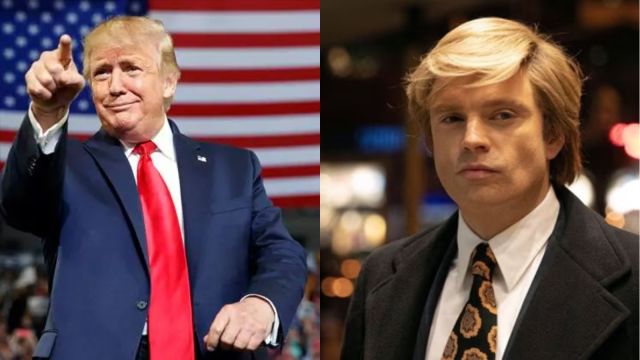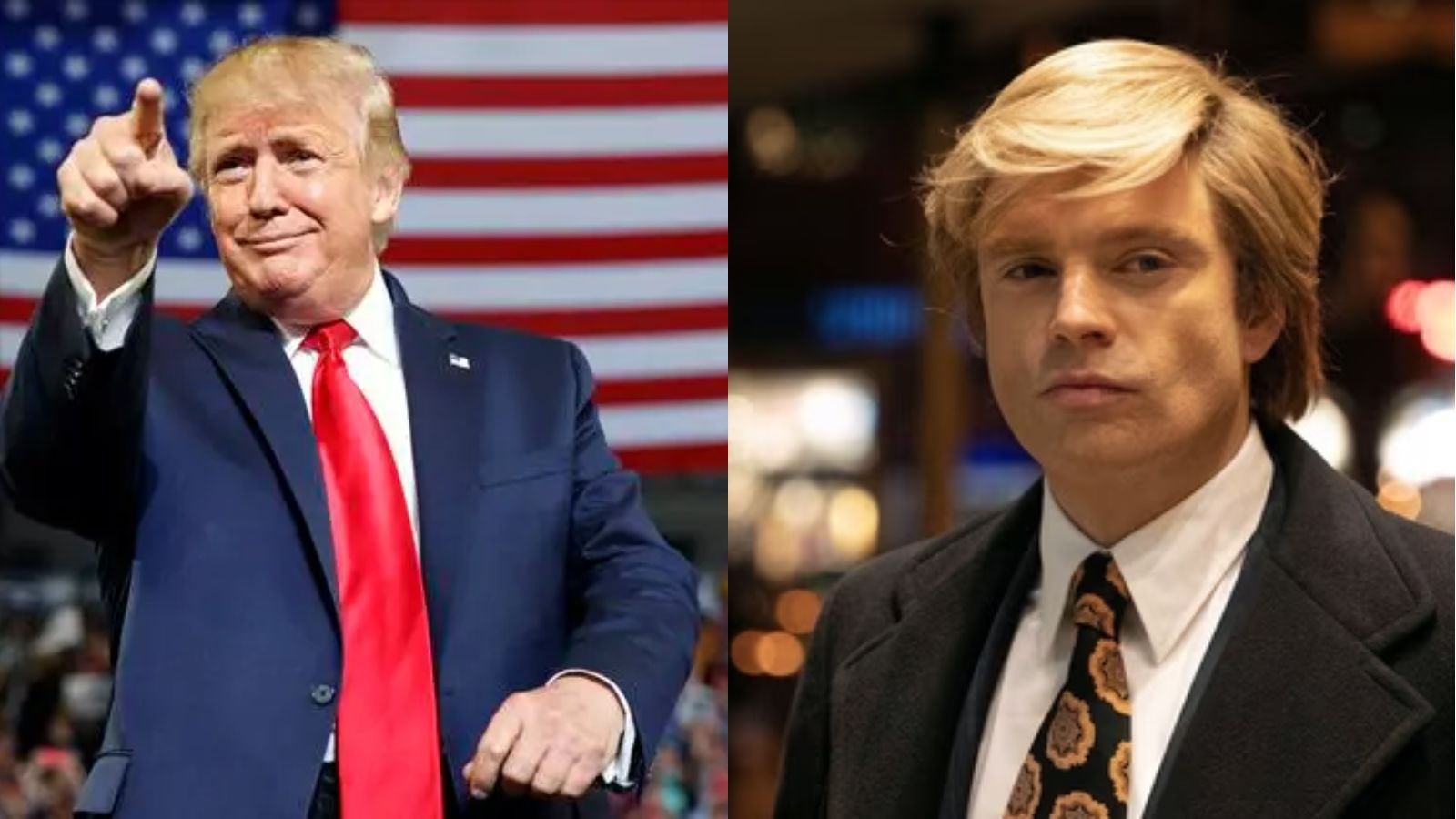
Origin stories matter. Just ask Donald Trump, running for President of the United States for the third time in a row and hoping to be successful for the second time. For weeks now, he has been obsessed with a particular autobiographical nugget shared by his rival, Kamala Harris. The Democratic nominee claims that in her youth, she once briefly worked a minimum-wage job at a McDonald’s. For Trump, the billionaire son of a wealthy real estate developer, her backstory makes for a very unflattering contrast with his own, especially as he tries to woo voters whose top concern is about making ends meet in a difficult economy. So what is Trump’s strategy? Strenuously push the unfounded claim that Harris is lying, while manning the fries station at a McDonald’s franchise and dodging questions about whether or not he would raise the minimum wage as President.
Clues to why Trump has chosen to respond in this fashion may be found in a controversial new biopic, The Apprentice, directed by Iranian-American filmmaker Ali Abbasi. Set in New York of the 1980s, it depicts the relationship that the ambitious young businessman formed with lawyer and political power broker Roy Cohn, and how it shaped him and his world view. “Rule no. 1: Attack, attack, attack,” Cohn tells Trump at one point. At another: “You create your own reality”. After the film premiered at the Cannes Film Festival earlier this year, it was described by film critic Tim Grierson as Trump’s “supervillain origin story” — a phrase that has since been echoed in almost all coverage about the film.
The Apprentice is not the only “villain origin” story of the year, though. Hitting theatres in November is the film adaptation of the Broadway show Wicked (based on the novel of the same name by Gregory Maguire, which, in turn, is a revisionist take on Frank L Baum’s The Wonderful Wizard of Oz). It tells the backstory of the so-called “Wicked Witch of the West”, the primary antagonist of the 1900 novel, of when she was a green-skinned and idealistic young girl named Elphaba whose great power is taken advantage of by the Wizard and Madame Morrible, the power broker of Oz. Then there’s Joker: Folie à Deux, the second, and final, instalment of another “origin story”, 2019’s Joker, about one of the chief villains of the Batman universe, which released earlier this month. Before that, in September, came Monsters: The Lyle and Erik Menendez Story about the real-life case of two brothers who brutally killed their parents in their Beverly Hills mansion in 1989 (the Netflix show, in fact, does double duty as an example of another entertainment trend: The “prestige” true crime drama with a stellar cast and top-of-the-line production values – nothing, at least in terms of treatment, like the grimy TV retellings of the late 1990s and early 2000s).
What does it say about us as creators and consumers that we are so invested in figuring out exactly what made the bad guys, well, bad? It hardly matters that under this broad umbrella of the “villain origin story” are both fiction and non-fiction. Some, arguably, are not even about villains, as much as they are about anti-heroes, like Wicked, or victims in their own way, like the Menendez brothers.
Are these supposed to be cautionary tales? Certainly, it can be wildly entertaining, when one has lived a straight-and-narrow kind of life, to be allowed the licence to be bad, even if only through the experience of a story. This holds true both for the storyteller and their audience. But perhaps there are lessons to learn too. One might say of The Apprentice, for example, that it teaches us to beware the student who learns too well from his teacher the dark arts of manipulation.
Yet, the morality handbook argument is the least compelling one in favour of such stories, which do so much more than teach us how to live. They are reminders that our world can, in fact, be an awful place — full of corruption, decay and betrayal — and that we are all, in the right (or wrong?) circumstances, capable of terrible actions (only the degree of susceptibility varies).
A popular criticism of The Apprentice is that it casts Trump in a sympathetic light. Could it be, however, that it casts the viewers in an unsympathetic light, forcing them to ask how they would themselves behave in exactly that time, place and position and on precisely the same quest that Trump was on in ’80s New York? To interrogate oneself in this way, especially if the truth that emerges is something that one would rather not confront, can be a deeply uncomfortable thing. Another discomfiting question: Is it possible to understand Trump and his story, without necessarily excusing his past and present behaviour, especially if a film has managed to place you, the viewer, inside his head? It’s disturbing territory to be in, for sure, but exploring it might yield some unexpected rewards, including a deeper understanding of one’s own psyche — that’s the promise of a good story about a bad man.
pooja.pillai@expressindia.com



